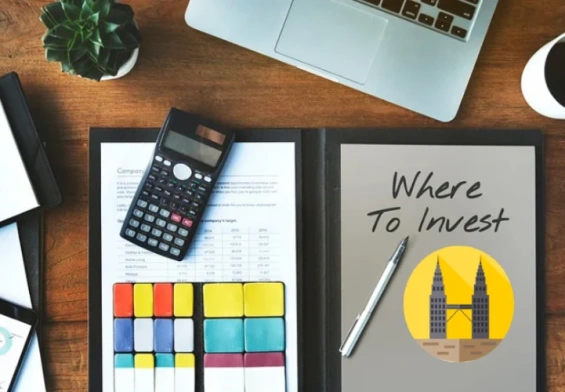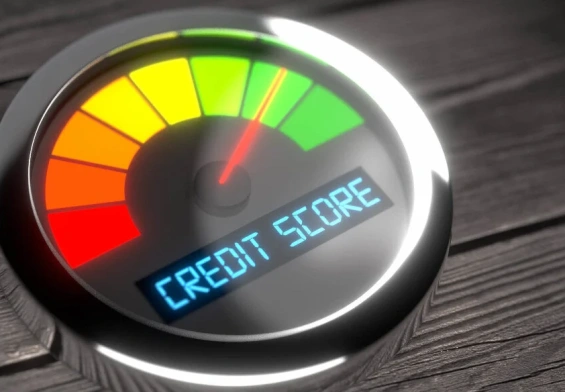Table of Contents
Best Budgeting Apps for Tracking Expenses | Rank up revolution
Intro: Best Budgeting Apps for Tracking Expenses
Budgeting has always been one of the most important steps in achieving financial stability, but in today’s fast-moving digital world, the tools we use to manage money have evolved dramatically. Gone are the days of relying solely on notebooks, spreadsheets, or mental math to keep track of expenses. Modern budgeting apps are designed to simplify the entire process, giving individuals and families greater control over their financial lives.
These apps not only help track expenses but also create insights into spending habits, highlight opportunities for savings, and provide motivation to stick to financial goals.
In this detailed guide, we will explore how budgeting apps work, why they have become essential in today’s financial landscape, and which apps stand out as the best for tracking expenses. By the end, you’ll have a clear understanding of how to leverage these tools to improve your financial health and take charge of your money in a way that feels intuitive and empowering.
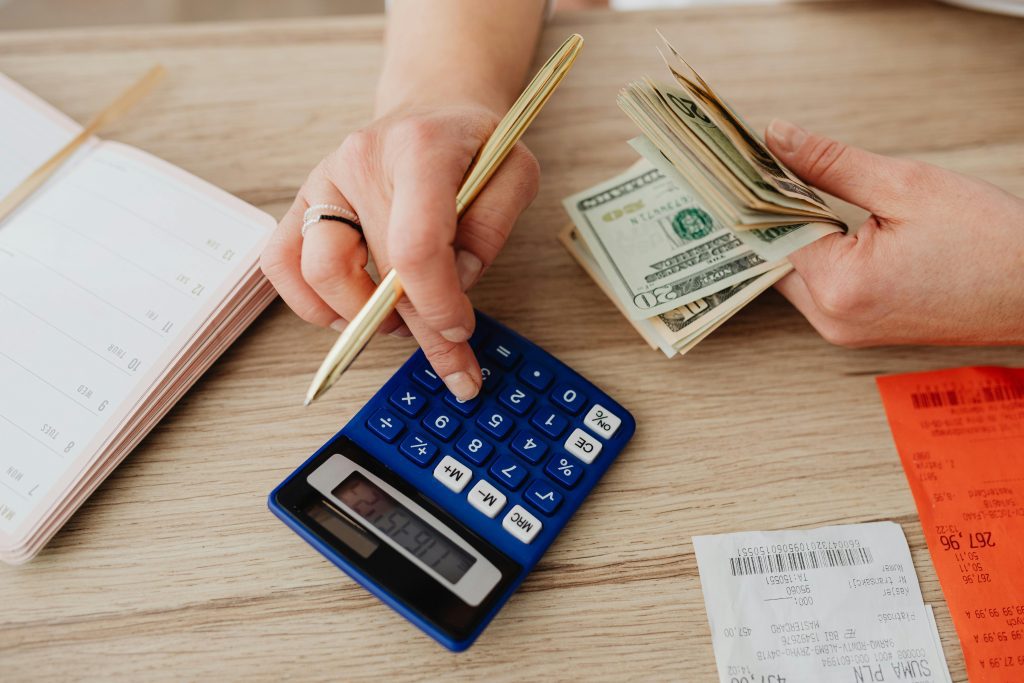
The Role of Budgeting Apps in Personal Finance
Budgeting apps act as personal financial assistants that live right in your pocket. They are designed to help individuals track every dollar that comes in and goes out, ensuring that money is allocated in a way that aligns with personal financial goals.
The biggest advantage of budgeting apps is their ability to automate processes that once took hours of manual effort. With features like automatic expense categorization, bill reminders, and savings trackers, these apps provide real-time financial insights without requiring extensive financial knowledge.
For many people, the act of tracking expenses manually can be overwhelming. Budgeting apps reduce the friction by connecting directly to bank accounts and credit cards, pulling in transaction data, and categorizing expenses automatically. This way, users don’t have to log every cup of coffee or grocery trip themselves; the app handles most of the work, leaving more time for reflection and adjustment.
Why Tracking Expenses Is Essential
The cornerstone of any successful financial plan is awareness. Without knowing where money goes, it’s nearly impossible to make meaningful improvements. Expense tracking ensures that you are not operating on guesswork but instead making decisions based on accurate data. For example, you might believe that dining out is a small part of your budget, but when the app shows hundreds of dollars spent at restaurants in a single month, it becomes clear where adjustments need to be made.
Tracking expenses also creates accountability. Seeing a breakdown of spending habits can be eye-opening and often prompts behavioral changes. Many people find that simply being aware of their spending leads to better decisions, as they are reminded of their financial goals and the importance of sticking to them.
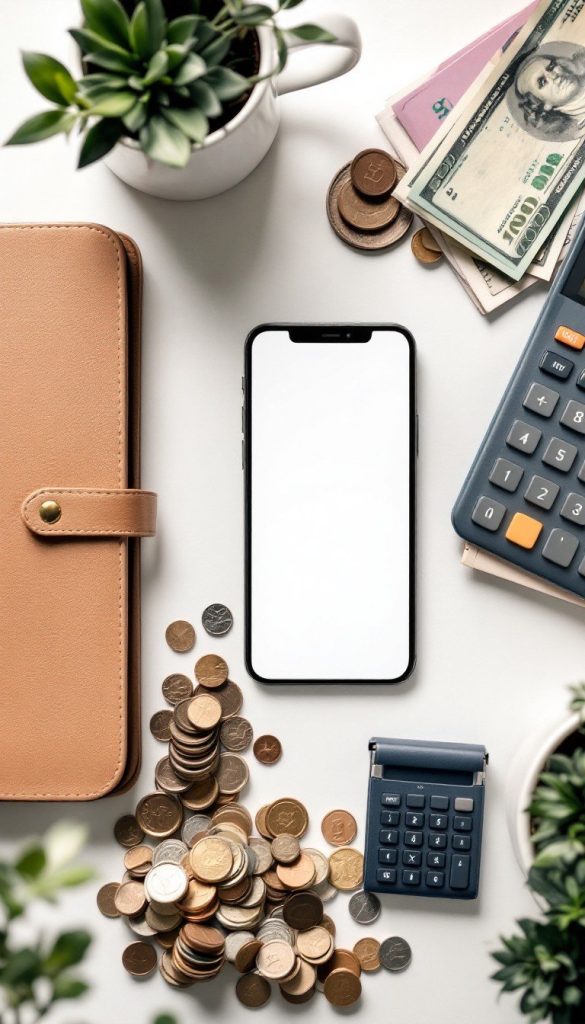
Features That Define the Best Budgeting Apps
Not all budgeting apps are created equal. The most effective ones combine ease of use with powerful features that provide both clarity and motivation. Some of the core functions that set the best budgeting apps apart include automatic expense categorization, custom budgeting tools, real-time alerts, financial goal tracking, and detailed reports. These features give users a comprehensive view of their financial health and allow them to make proactive changes before small issues become larger problems.
Another valuable aspect is integration. Many apps now connect with banks, credit cards, investment accounts, and even digital wallets, ensuring that every financial activity is accounted for. This creates a full picture of an individual’s finances and eliminates the need for manual tracking.
Popular Budgeting Apps for Expense Tracking
There are a variety of budgeting apps on the market, each with its own strengths and ideal use cases. Some are designed for beginners who want simplicity, while others cater to advanced users looking for more detailed financial analytics. Let’s explore some of the best-known apps and their impact on personal budgeting.
Mint
Mint is one of the most recognized names in personal finance apps. It connects seamlessly with multiple bank accounts and credit cards, automatically tracking transactions and categorizing them. The dashboard provides a clear overview of income, spending, and savings goals. Users can set budgets for specific categories, and the app sends alerts if spending nears the set limit. Mint is particularly helpful for people who want an all-in-one tool that covers both budgeting and credit score monitoring.
YNAB (You Need a Budget)
YNAB takes a more proactive approach to budgeting by following the philosophy that every dollar should have a job. Instead of only tracking past transactions, YNAB emphasizes planning ahead and assigning funds to categories before they’re spent. This method encourages mindful spending and ensures that users prioritize their goals. YNAB is best for individuals who want to take a hands-on approach and are committed to building strong financial habits.
PocketGuard
PocketGuard simplifies budgeting by focusing on what truly matters: how much money you can safely spend. The app calculates your income, bills, and goals, then shows how much “pocket money” is available. This straightforward approach makes it ideal for those who get overwhelmed with detailed budgets but still want a clear sense of financial direction.
Goodbudget
Goodbudget uses the envelope budgeting method in a digital format. Instead of physical envelopes, users create digital envelopes for categories like groceries, rent, and entertainment. Spending is tracked against these envelopes, and once the budget for a category is exhausted, no more spending should occur. This app is great for couples or families who want to budget together, as envelopes can be shared across devices.
EveryDollar
EveryDollar is based on the zero-based budgeting method, where every dollar of income is assigned a purpose. The app emphasizes intentionality in spending and offers a straightforward interface that allows users to create and track budgets without unnecessary complexity. EveryDollar is often preferred by those following specific financial planning systems, but its ease of use appeals to anyone looking for a structured approach.
Personal Capital (Now Empower)
While Personal Capital is often considered an investment tracking app, it also offers strong budgeting features. The app provides detailed insights into spending, savings, and net worth, making it ideal for individuals who want a broader picture of their financial life. It’s particularly useful for those managing both day-to-day expenses and long-term investments.
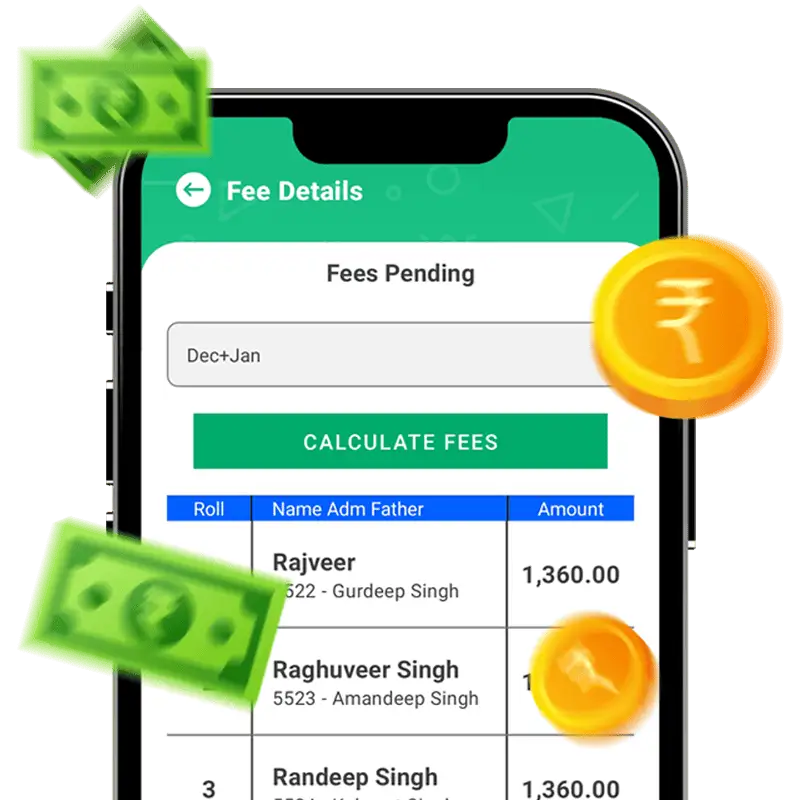
Choosing the Right App for Your Lifestyle
Selecting the best budgeting app depends heavily on personal preferences and financial goals. For some, simplicity and automation are most important, while others may prioritize detailed reporting and proactive planning. A student managing basic expenses may not need the same features as a family saving for a home or an individual managing multiple income streams. The good news is that there’s a budgeting app designed to fit nearly every lifestyle.
When choosing an app, it’s essential to consider factors such as compatibility with your bank, ease of navigation, customization options, and the level of involvement you want in managing your money. Many apps offer free trials, which makes it easy to test out different platforms before committing.
How Budgeting Apps Encourage Better Habits
One of the most powerful impacts of budgeting apps is the way they reshape financial behavior. By making money management accessible and engaging, these tools encourage individuals to think critically about their spending choices. Notifications serve as gentle reminders to stay on track, while visual reports highlight trends that may otherwise go unnoticed.
Over time, using a budgeting app can build stronger money habits, such as consistently saving a portion of income, avoiding unnecessary debt, and planning purchases more strategically. These improved habits compound over months and years, leading to greater financial stability and freedom.
Budgeting Apps for Families and Couples
Budgeting apps are not just for individuals—they also provide powerful tools for families and couples looking to manage shared finances. Features like shared budgets, synchronized accounts, and collaborative goal tracking ensure that everyone stays aligned with financial objectives. These tools make it easier to divide responsibilities, plan for joint expenses, and avoid misunderstandings about money.
For families, budgeting apps can also be an educational tool, teaching children about money management by involving them in discussions about spending and saving. By fostering transparency, budgeting apps create healthier financial dynamics within households.
The Future of Budgeting Apps
As technology advances, budgeting apps are becoming more intelligent and personalized. Artificial intelligence and machine learning are beginning to play a role in predicting spending patterns and offering customized recommendations. Future apps may go beyond simply tracking expenses and instead provide proactive advice on how to optimize financial decisions.
Integration with other aspects of life, such as smart devices and digital assistants, will also likely expand. Imagine receiving voice updates about your budget from a smart speaker or having your app automatically adjust your budget when your income changes. The future promises even more seamless financial management tools.
Final Thoughts
Budgeting apps have transformed the way people interact with money. They take what was once a daunting task and turn it into a manageable, even empowering, experience. Whether you’re someone who struggles to keep track of bills or a financially savvy individual looking for deeper insights, there’s a budgeting app that can meet your needs.
The best budgeting apps do more than just track expenses—they create awareness, encourage accountability, and foster better financial habits. By integrating these tools into your daily routine, you take a proactive step toward financial stability and long-term success. As the world continues to shift toward digital solutions, budgeting apps will remain at the forefront of personal finance, guiding individuals toward smarter and more intentional use of their money.
FAQs on Best Budgeting Apps for Tracking Expenses
1. What are budgeting apps and why should I use them?
Budgeting apps are digital tools that help track income and expenses, making money management easier and more organized.
2. How do budgeting apps track my expenses?
Most budgeting apps connect to your bank accounts and credit cards, automatically categorizing transactions for you.
3. Do I need financial knowledge to use a budgeting app?
No, budgeting apps are designed for beginners and advanced users alike, making it easy for anyone to start.
4. Are budgeting apps safe to use with my bank account?
Reputable budgeting apps use bank-level encryption to protect your financial information, making them very secure.
5. Can budgeting apps help me save money?
Yes, by tracking spending and highlighting unnecessary expenses, these apps encourage smarter saving habits.
6. Do budgeting apps work for families and couples?
Many apps offer shared accounts or budgets, making it easier for couples and families to manage expenses together.
7. What makes Mint one of the best budgeting apps?
Mint is popular because it automatically syncs with bank accounts, tracks expenses, and offers credit score monitoring.
8. How is YNAB different from other budgeting apps?
YNAB follows the philosophy of assigning every dollar a purpose, focusing on proactive money planning.
9. Can I use budgeting apps without linking my bank account?
Yes, some apps like Goodbudget allow manual expense entry for those who prefer not to link accounts.
10. Are there free budgeting apps available?
Yes, apps like Mint and Goodbudget offer free versions, though premium plans may include more features.
11. How does PocketGuard simplify budgeting?
PocketGuard shows how much disposable income you have left after bills and savings goals, making budgeting stress-free.
12. Is EveryDollar a good budgeting app for beginners?
Yes, EveryDollar offers a simple zero-based budgeting system that is beginner-friendly.
13. Can budgeting apps track cash spending?
Yes, most apps allow you to manually enter cash expenses so you don’t lose track.
14. Do budgeting apps send reminders for bills?
Many apps include bill reminder features, ensuring you never miss a payment.
15. Are budgeting apps only for personal use?
While most focus on personal finance, some can also help small businesses with basic tracking.
16. How do budgeting apps categorize expenses?
They use algorithms to automatically sort transactions into categories like groceries, rent, or entertainment.
17. Can I create custom categories in budgeting apps?
Yes, many apps let you create custom spending categories for more personalized tracking.
18. How do budgeting apps help reduce overspending?
They provide alerts when you’re close to exceeding your budget and help track spending patterns.
19. Can budgeting apps show me where most of my money goes?
Yes, apps generate reports and visual charts to highlight your biggest spending areas.
20. Do budgeting apps help with long-term financial goals?
Many apps include goal-setting features, such as saving for a vacation, car, or emergency fund.
21. Are budgeting apps worth paying for?
Paid versions often provide advanced features like detailed reports, goal tracking, and syncing across multiple devices.
22. Do budgeting apps work internationally?
Some apps work globally, but others may only support banks in certain countries.
23. Can I use budgeting apps offline?
Some apps offer offline features, but syncing with your bank requires an internet connection.
24. How often should I check my budgeting app?
It’s best to check daily or weekly to stay aware of your spending and progress.
25. What budgeting app is best for couples?
Goodbudget and YNAB are popular choices for couples because they allow shared access to budgets.
26. What app is best for beginners in budgeting?
Mint and EveryDollar are simple and user-friendly for beginners.
27. What budgeting app is best for advanced users?
YNAB and Personal Capital (Empower) are excellent for users who want detailed control and insights.
28. Can budgeting apps track multiple bank accounts?
Yes, most apps let you connect multiple accounts for a complete financial overview.
29. Do budgeting apps track subscriptions?
Many apps identify recurring charges like streaming services and remind you about them.
30. How do budgeting apps help with debt management?
Some apps offer debt payoff calculators and track progress on loans and credit cards.
31. Can budgeting apps replace financial advisors?
No, they are great tools for tracking and planning, but professional advice may still be needed for complex goals.
32. Do budgeting apps help build better financial habits?
Yes, regular use encourages saving, mindful spending, and sticking to financial goals.
33. Can budgeting apps connect to investment accounts?
Apps like Personal Capital integrate both budgeting and investment tracking.
34. Are budgeting apps suitable for students?
Yes, students can benefit greatly by tracking limited income and expenses with budgeting apps.
35. Do budgeting apps work on both iOS and Android?
Most budgeting apps are available on both platforms, and some also offer desktop access.
36. Can budgeting apps be used for small businesses?
Some apps provide features suitable for freelancers and small business owners, though they’re not replacements for accounting software.
37. Do budgeting apps charge hidden fees?
Reputable apps are transparent with pricing. Free versions may include ads, while premium plans have clear subscription fees.
38. How can budgeting apps reduce financial stress?
By organizing finances, they provide clarity, reduce guesswork, and help avoid overspending.
39. Do budgeting apps work in real-time?
Yes, once synced with accounts, most apps update in real time as transactions occur.
40. How do I choose the best budgeting app for me?
Consider your financial goals, preferred level of detail, and whether you want automation or manual control before deciding.
Also visit:-


